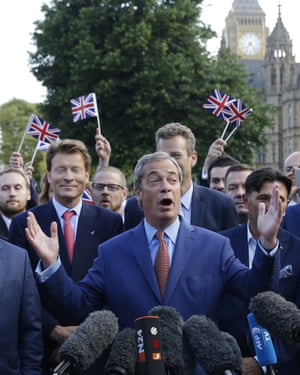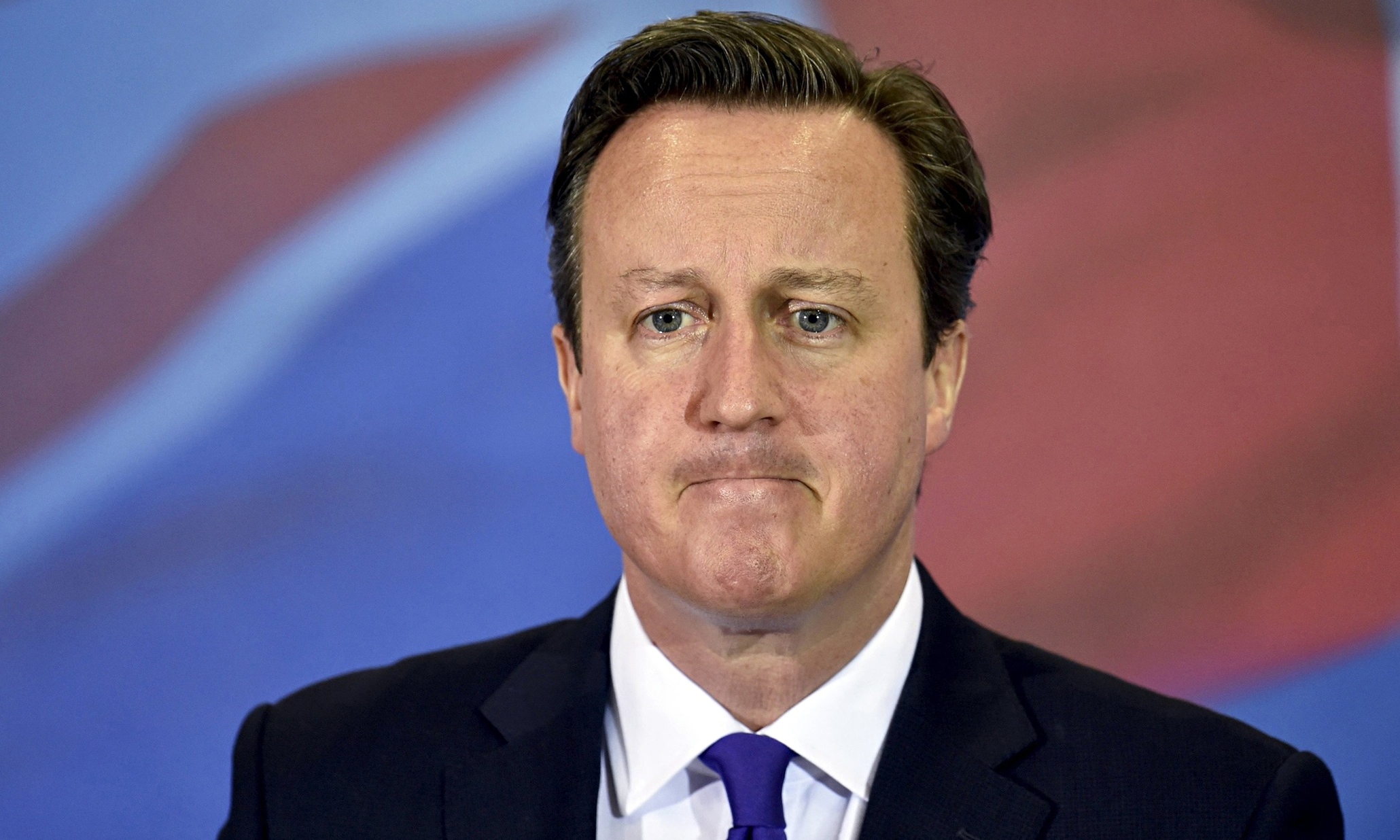Source: The Guardian
David Cameron has resigned as prime minister after the British public rejected his personal entreaties and voted to leave the European Union. “The will of the British people is an instruction that must be delivered,” the prime minister said, his voice breaking with emotion, and his wife, Samantha, standing beside him in Downing Street on Friday morning. Cameron promised to remain in post until the autumn, to “steady the ship”, but said: “I do not think it would be right for me to be the captain who steers the country to its next destination.” He said he had already spoken to the Queen to make his plans clear; but would not yet trigger article 50, the clause in the Lisbon treaty that kicks off the two-year process of withdrawal from the EU.
His dramatic announcement came after a sharp fall in the pound and as £128bn was wiped off the FTSE 100.
Cameron said: “I am honoured to have been prime minister of this country for six years.”
Earlier on Friday, Nigel Farage, the Ukip leader, became the first party leader to call for Cameron to go, saying Britain needed a “Brexit prime minister”.
Cameron’s team in Downing Street were shocked and distraught by the narrow win for leave, with 52% of the vote, after polls had suggested a move towards a comfortable margin for remain in the final few days of campaigning.
The prime minister and the chancellor, George Osborne, had gambled their political futures on the historic referendum, which was called to settle the deep divide within their own party.
But a narrow victory for remain early in the night for Newcastle, which had been expected to reject Brexit by a stronger margin, set the pattern for later results, which saw people voting against the overwhelming advice of economic experts that leaving would be an act of “economic self-harm”.
In the Labour stronghold of Sunderland, leave led with more than 61% of the vote. Nuneaton, the UK’s bellwether area, went 66% for leave.
The value of sterling slumped to a 31-year low on currency markets, and was on course for its biggest one-day loss in history, as it became increasingly clear that voters had rejected the overwhelming consensus at Westminster.
Treasury officials were preparing to implement contingency plans for calming financial markets that were prepared in the run-up to the poll, and the governor of the Bank of England, Mark Carney, was expected to make a statement on Friday morning.
Both the BBC and ITV called the result for leave at around 4.40am. Farage had declared victory 20 minutes earlier, despite having earlier conceded he had probably lost. He said the British people had achieved a revolution “without a single bullet being fired”.
Farage also criticised the claim at the centre of the cross-party Vote Leave campaign that leaving the EU would free up £350m a week to be spent on the NHS.

“This, if the predictions now are right, this will be a victory for real people, a victory for ordinary people, a victory for decent people,” he said.
Farage had been criticised for what some saw as the divisive tone of Leave.EU’s campaign, including a controversial poster picturing a queue of migrants, with the heading, “Breaking Point”.
Cameron had planned, on the basis of a remain win, to announce a series of policy initiatives immediately, to reunify his fractured party and relaunch the government.
Gisela Stuart, the Labour MP who backed the Vote Leave campaign, gave part of her victory speech in German, saying Britain would remain an open and friendly country.
“People were given the impression they had no choice but to remain, but they voted to leave. It is incumbent on all of us to be very calm and remember our responsibility for the future of the United Kingdom,” she said.
The shadow chancellor, John McDonnell, said: “People will be waking up this morning to turmoil in the markets and the pound crashing, and fearing the emergency budget the chancellor threatened to hike their taxes and cut public services.”
The Labour leader, Jeremy Corbyn, had earlier called for the prime minster to trigger article 50 immediately. “The whole point of the referendum was that the public would be asked their opinion, they’ve given that opinion and it’s up to parliament to act on that opinion.”
